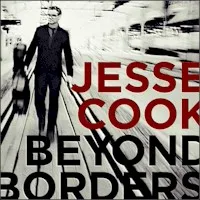Styles: Piano Jazz
Year: 2007
File: MP3@320K/s
Time: 68:08
Size: 158,1 MB
Art: Front
(2:55) 1. Dawn Mist
(3:18) 2. Beautiful Adela
(4:29) 3. I'll Remember April
(2:35) 4. Reminiscing
(2:11) 5. Get Happy
(3:02) 6. Bye Bye,Blackbird
(3:06) 7. Blues X
(3:45) 8. People's Park
(2:35) 9. A Night In Nalen
(3:38) 10. Blue Hour
(3:12) 11. Studio Blues
(3:58) 12. Farewell To Sweden
(4:17) 13. Debut (bonus track)
(5:20) 14. Lady J. Blues (bonus track)
(5:48) 15. Things We Did Last Summer (bonus track)
(4:52) 16. Ready Freddie (bonus track)
(5:19) 17. I'll Remeber April (bonus track)
(3:39) 18. These Foolish Things (bonus track)
Freddie Redd In Sweden
Year: 2007
File: MP3@320K/s
Time: 68:08
Size: 158,1 MB
Art: Front
(2:55) 1. Dawn Mist
(3:18) 2. Beautiful Adela
(4:29) 3. I'll Remember April
(2:35) 4. Reminiscing
(2:11) 5. Get Happy
(3:02) 6. Bye Bye,Blackbird
(3:06) 7. Blues X
(3:45) 8. People's Park
(2:35) 9. A Night In Nalen
(3:38) 10. Blue Hour
(3:12) 11. Studio Blues
(3:58) 12. Farewell To Sweden
(4:17) 13. Debut (bonus track)
(5:20) 14. Lady J. Blues (bonus track)
(5:48) 15. Things We Did Last Summer (bonus track)
(4:52) 16. Ready Freddie (bonus track)
(5:19) 17. I'll Remeber April (bonus track)
(3:39) 18. These Foolish Things (bonus track)
CD release that contains the complete 1956 LP Freddie Redd in Sweden plus the pianist's first trio session and the only two trio tracks from Redd's only recorded live performance in Sweden. Freddie Redd is a very talented yet obscure and underrated pianist. Despite enjoying a long life in which he never stopped playing, Redd has left behind a rather sparse body of recorded works. Although he played with such great Jazz names as Art Blakey, Coleman Hawkins, Tina Brooks, Sonny Rollins, Charles Mingus and Lou Donaldson, the quantity of his recordings is sorely lacking. The quality of these recordings, however, is of the highest order. When Swedish trumpeter Rolf Ericson was commissioned to find American musicians to travel to Stockholm for a series of modern Jazz concerts, Redd was chosen along with bassist Tommy Potter and drummer Joe Harris. All his trio recordings during that tour are included on this release. 18 tracks. Lone Hill Jazz. ~ Editorial Reviews https://www.amazon.com/Sweden-FREDDIE-REDD/dp/B000W7YX4U
Personnel: Piano – Freddie Redd; Bass – John Ore, Tommy Potter; Drums – Joe Harris , Ron Jefferson
Personnel: Piano – Freddie Redd; Bass – John Ore, Tommy Potter; Drums – Joe Harris , Ron Jefferson
Freddie Redd In Sweden




















